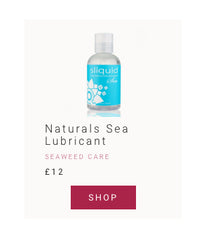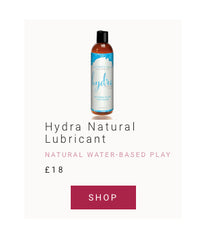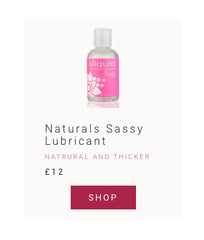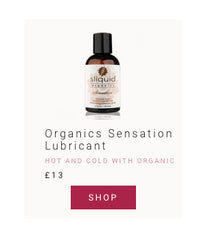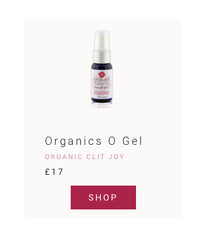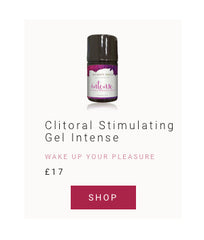Guide to Lubricant
People are talking about lubricants more and more often—and it’s about time! But it’s not that easy to find comprehensive and practical information about the subject that also clarifies all of our doubts. Living out a pleasurable and fulling sex life is a universal right, and sharing information is one of the best ways to make sure that as many people as possible can positively enjoy it.
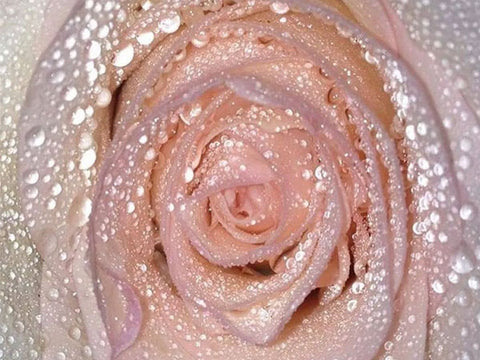
Index:
What are they? Why do people use them?
How do you choose one?
Water-based
Silicone-based
Extra sensation
Do they contain harmful substances? Is it normal if they burn?
People have recommended using coconut or almond oil. What do you think?
How do you use it, and how much do you use?
I’m trying to get pregnant—are there specific lubricants that are meant for this?
This is why we’ve decided to ask you these puzzling questions, in the hopes of resolving them and understanding more about these “special allies” of pleasure in our first article.
What are they? Why do people use them?
Lubricants, or intimate gels, are substances created to lubricate and reduce friction during masturbation or during sex with others, both with or without sex-toys. They can be used alone or in company, for a body massage or to stimulate the genitals. They have the superpower of making everything smoother by eliminating friction and making movements more fluid.
In particular, they’re absolutely indispensable when having anal sex and are great go-tos for those having their first sexual experiences of any kind. They’re also great for intense or painful penetration—most often caused by lack of lubrification.
“One day, some of my friends were talking about foreplay and I joined in on the conversation. I told them that it was important and necessary to use lube. They started laughing and said that lube was useless and unnecessary. I feel like there’s a sort of prejudice against lubricants, especially among young straight people.”
“Many people take offense if asked to use them.”
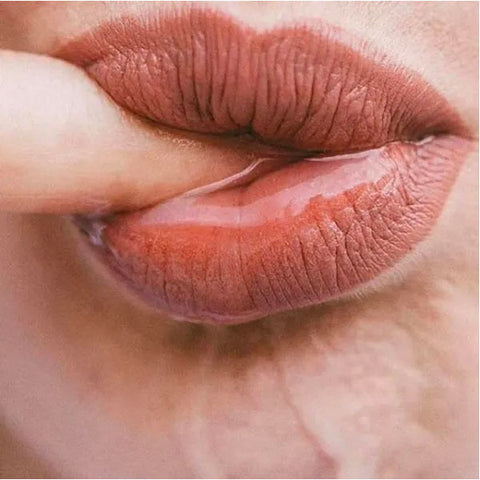
It’s true—there are various prejudices regarding lubricants: there are those who understand them only as a “solution” for a physical discomfort, and those who think that they only serve a purpose in anal sex. Basically, those who take offense aren’t aware of the fact that vaginal lubrification is not just an erotic experience.
In fact, those who have a vagina can confirm that for as many times that “being wet” goes along with sexual arousal, the two things aren’t always necessarily linked. The same thing goes for erections and masculine ejaculation, it’s called non-concordance.
In reality, lubricants are used by all types of people as an extra support or an accessory. There are those who find them fun, those who use them to enhance their experience or heighten their sensations, and those who simply appreciate them…no questions asked! Everyone can use them, and those who do aren’t doing anything “wrong”.
Explore your options and let yourself be guided by your interests. For whatever reason you choose to use lubricants in a couple, clearly explain it to your partner and make sure to use products that suit everyone’s needs.
How do you choose one?
By knowing the various types on the market and the ingredients to avoid, but also by familiarising yourself with your own body and your needs. There are numerous types of lubricants adapted to specific situations and needs. Here are the main categories:
Water-based
These are the must haves of lubricants—or in any case, the most versatile, because they can be used both internally or externally and are perfect for every type of sex toy and barrier method (such as condoms or dental dams). They are easily removable and come in different textures and formulas. They’re the most popular and most gentle on the skin, particularly when they are organic and natural, such as Sliquid H2O vegan or Sliquid Sea.
+ Discover your lubes
They tend to absorb and evaporate more quickly, so they require more applications. Here’s our pro tip: use a few drops of saliva or water (perhaps from a glass that you’ve placed nearby beforehand) in order to prolong the lubricant’s effects. Be sure not to exaggerate, though, because a large amount of water can also remove the product, which is why this type of lubricant is not fit for sexual relations in the water (in the shower, in pools, at the beach, etc.)
Silicone-based
When it comes to lubricants in this category, keep in mind that a little goes a long way. They’re perfect for those who prefer a thicker consistency, similar to olive oil, without having to reapply many different times. For this reason, these types of lubricants are popular choices for those who have anal sex.
Now let’s look at some setbacks. Aside from products that state otherwise or silicone-hybrids that have a water base, most silicone-based products are incompatible with silicone toys and some condoms. They tend to settle in and become sticky, so they need to be removed carefully, and if necessary, with the help of intimate soap.

Extra sensation
It’s also possible to find products that don’t just lubricate. For those who like to experiment with temperature, we would advise an organic formula like Sliquid Organics Hot&Cold, which goes on cold and then heats up with stimulation. If you prefer stimulating action, take a look at Sliquid Organics O Stimulator, a vegan and organic gel that intensifies pleasure with vasodilation, and also Intimate Earth Clit Stimulation, without menthol (for those who find it irritating).
Pay attention to lubricants that promise to “relax” you: it’s fundamental that everything is done with consent and intention, and without any restrictions. If you feel like you need to lose awareness in order to block out pain, it would be a good idea to find out why. Pain can alert you to something that’s wrong, and if you don’t feel comfortable, sedating an area or sweeping it under the rug shouldn’t be the solution.
________________________________________________________________
You may also like: Guide to Anal Sex
________________________________________________________________
“I want to buy a water-based lubricant, but thicker and creamier than a liquid.”
There’s a compromise for those who don’t love silicone, or are allergic to it, but need an extra glide: Sliquid Sassy H2O Thicker is water-based and contains additional vegetable cellulose, making it delicate, yet resistant. In a similar vein, Pink Water Based Like Silicone is both tasteless and colorless, enriched with Aloe Vera, ginseng, and guarana.
+ Find out more
Do they contain harmful substances? Is it normal if they burn?
Like we said earlier, there are many different formulas, and petroleum or oil-based formulas should be avoided. Ingredients to look out for contain glycerin, fragrances, parabens, dyes, or sugars. Avoid these if you have sensitive skin, if you are prone to infections, or if you want to use products that are as organic as possible. Choose organic lines, such as Sliquid Organics, NaturaLove from Jo System or Intimate Earth, which include lubricants that are unique, stimulating, or with natural aromas including Intimate Earth Organic Salted Caramel or Jo Strawberry Natural, for those who don’t want to miss out on experimenting with taste and aromas.
When it comes to burning—no, it’s not normal. If the product isn’t expired, it’s possible that your skin can’t tolerate the product, or that it’s reacting to a specific ingredient. This is why you should avoid these products and first test them out on a patch of skin on another part of the body (like your arm, for example).
Intimate Earth Additional Protection is an interesting newcomer to the market, containing added protection in the form of Carrageenan and Guava extracts with antibacterial properties. A recent study has proven that these extracts are natural inhibitors of fungal infections and protectors against the HPV virus. (While the amount cannot completely replace other forms of protection, it’s an excellent addition).
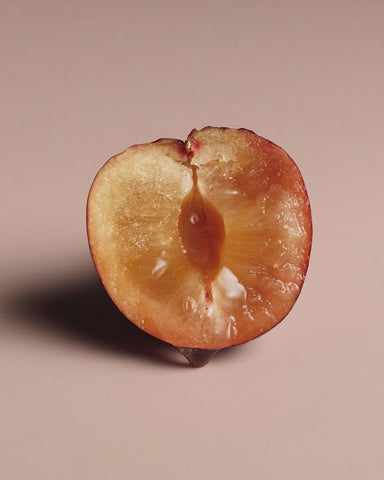
People have recommended using coconut or almond oil. What do you think?
“Could Johnson’s Baby Oil be dangerous to use?”
In general, we prefer not to recommend “household products”, with so many reliable, functional, and equally readily available products out there.
In particular, oils (coconut and olive oil are the most popular replacements for lubricants, but this also goes for almond oil) and oil-based lubricants are not compatible with barrier protection methods or silicone sex toys—and they’re actually quite difficult to remove. In addition to staining fabrics, these oils can settle in different parts of the body (specifically the vaginal canal, at the base of the glans, or in the anal area). Additionally, these lubricants can reach their expiration dates quickly, leading to irritation.
However, these oils can be great ideas for things that don’t involve mucous membranes, like a relaxing back massage (or any other external part of the body!). Kama Sutra Massage Oil (not lube) is perfect for this type of thing.
Using lotions, body creams, shower products, or Johnson’s baby oil should all be avoided if there’s a chance that they could come into contact with mucous membranes or the urinary meatus (the hole of the penis, from which urine comes out). This is because these substances contain dyes and/or perfumes, which are our pH’s worst enemies and could cause burning sensations.
“And what about saliva?”
Despite the fact that it’s considered the oldest, most natural lubricant and the fact that it’s usually used without complications, it’s best to avoid this when you can. This is especially true if you’re sick or have the flu, because the virus and bacteria could spread to the sensitive vaginal mucous membranes.

How do you use it, and how much do you use?
You can apply lubricants directly to the area that you intend to lubricate, or you could first pour some in your hand and then apply it more evenly. As for the amount, it depends on each and every person, and also depends on the sensations that the particular lubricant gives you. Do you like it? Do you feel good? Did it eliminate the friction? Great – that’s perfect!
Is it bothering you a bit? Does it seem to be too much or too little? You can solve this by spreading it on other parts of your body or by adding more when necessary. Just make sure that you remove all of it with your fingers, water, or intimate soap (but not inside your vagina or anus) and don’t forget to pee afterwards in order to eliminate any eventual residue inside the urethra.
I’m trying to get pregnant—are there specific lubricants that are meant for this?
Various studies have suggested that some products, especially cheap ones that can be found at supermarkets, can reduce sperm motility and not align with the vagina’s natural pH, which could prove as an obstacle to conception.
As we wait for further research to be done, we’d recommend a sperm-friendly product, like Sliquid Organics Oceanic.
If you’ve avoided using lubricants, or the occasion still hasn’t presented itself to you, try things out with travel size options or a few samples. If you use a few drops the next time you masturbate or have a sexual experience with someone else, we promise you that you’ll be able to tell a difference!
And don’t forget to fill us in afterwards.


